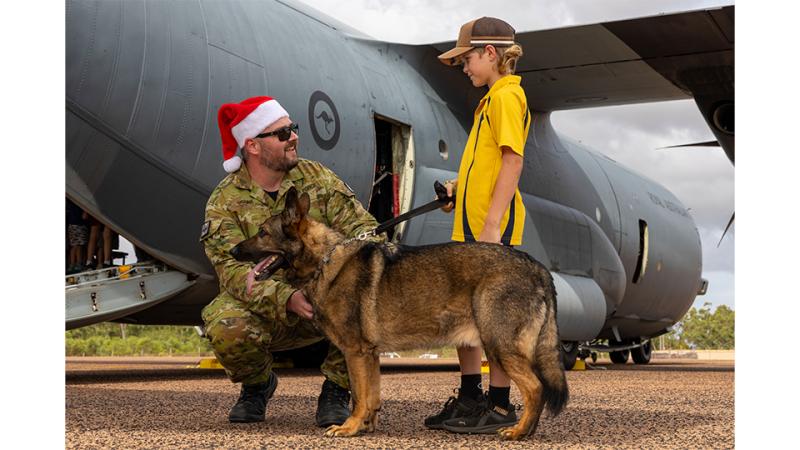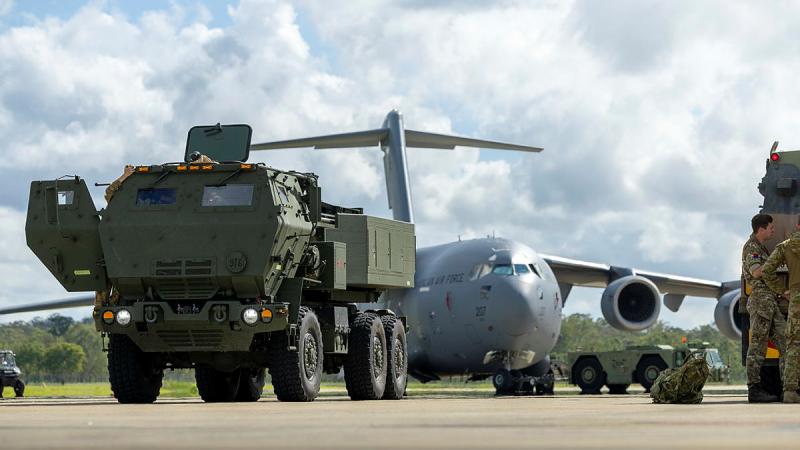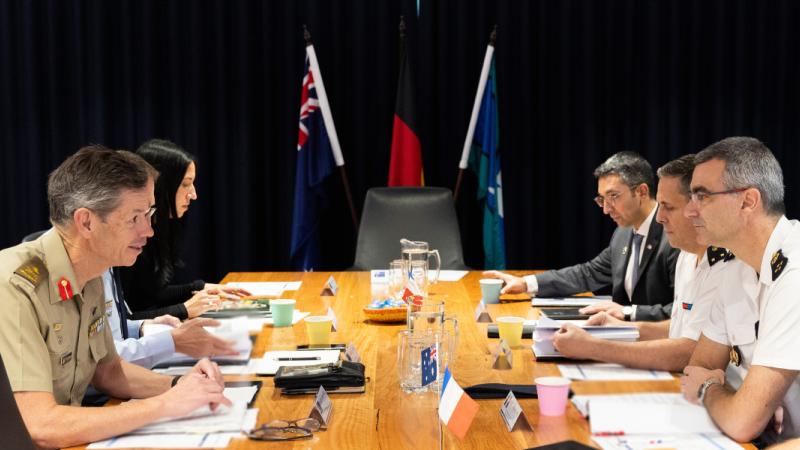27 November 2025
Australian soldiers demonstrating small-boat tactics quickly learned there was no margin for error when instructing Filipino marines.
“Your demonstrations have to be on point, because they’ll copy them,” said Sergeant Joel Baron, an infantryman from 5th/7th Battalion, the Royal Australian Regiment (5/7RAR).
“For anyone coming over, make sure your drills are down pat, down to the small movements.”
Sergeant Baron was the second-in-command (2IC) of a littoral and riverine training package run for Philippine marines at Ternate in the Philippines from October 19 to 31 that included planning, small boat ops and maintenance.
The 11 Australians found their Philippine counterparts most excited to learn how Aussies operate their boat formations and use hand signals to communicate on the water.
“Their boating skills themselves were excellent – they’re really good on the tiller control. It was more about teaching the little drills,” Sergeant Baron said.
This included the Australian method for towing, which the Filipinos adopted, along with more sequenced, man-overboard drills.
Each day, they also gradually introduced Australian safety planning processes that were translated to Tagalog and factored in available safety equipment.
Sergeant Baron said the combat-experienced Philippine marines did not want to lose any friends to training, and became very passionate about safety as the program progressed.
“At the start, they weren’t wearing lifejackets for the rocky landings, but as soon as they saw we were doing it, and we were encouraging them, they all started wearing them,” he said.
'Everything we did for this will essentially be used for operational capability. It was our honour to support that.'
Meanwhile, the Australians were impressed with how the Philippine marines improvised to protect their boats, including a car tyre slung under the boat to shield the underside during rocky landings.
“That’s something I’ll have in my back pocket,” Sergeant Baron said.
“When I get back to Australia, I’ll show my soldiers how to do it.”
Aussie soldiers were also impressed by the Philippine marines’ dedication to their role – being at work early to rehearse drills, studying late at night, then coming with new questions.
To be a Philippine force recon marine takes more than a year of training, then they wait to complete an active combat mission and be qualified.
“It’s like a brotherhood, you can see how proud they are of all the things they’ve done,” Sergeant Baron said.
“They’re tough individuals, but they’re the most caring, kind people, and happy. They’ve experienced loss and they appreciate life so much more.”
Training finished with a full-mission profile, planned by the Force Reconnaissance Regiment marines, based on translated Australian orders structures and activity briefs.
Australian contingent commander Captain Joel Scaramella was proud to have worked with his Philippine counterparts, who would soon be back on combat operations.
“Everything we did for this will essentially be used for operational capability. It was our honour to support that,” he said.
The activity was conducted as part of a land mobile training team under the Joint Australian Training Team – Philippines.


